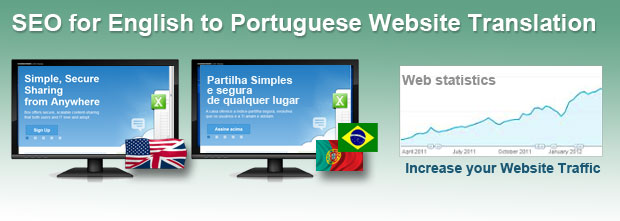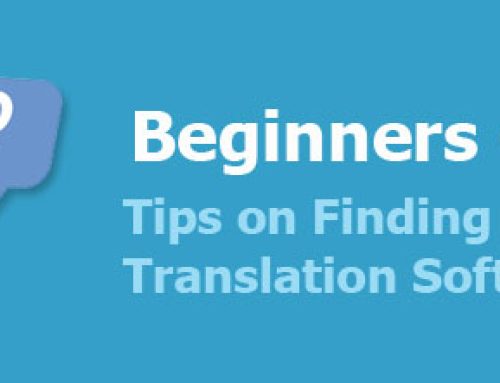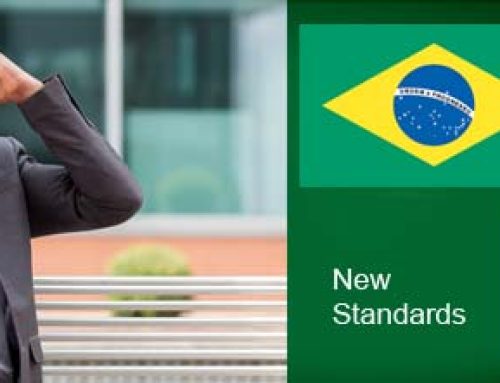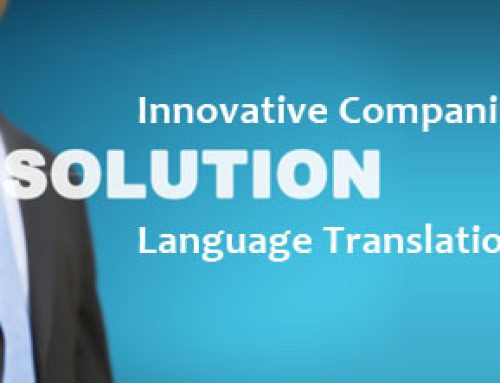When translating your website pages, white papers or online marketing materials from English to Portuguese, a word-for-word translation will not work. If you want to get the same or even better SEO results, you must first research, localize and adapt your content for the Portuguese target audience.
So, what can you do to stay on top of the game when translating your English content to Portuguese? In this article, we will cover a few things you can do to ensure you optimize your online content correctly after you’ve used a Portuguese language converter to translate it.
Localize and optimize your content
When you use an English to Portuguese language converter to translate your online materials, make sure you also spend some time to optimize it correctly for your new target audience.
Best practices:
- Create unique content that is not just converted into Portuguese, but also optimized after translation.
- If the English content is optimized for the US market, translating it into Portuguese doesn’t mean it’s also optimized for the Portuguese market.
- Optimize your content for popular keywords in Portugal.
If possible, have professional translators or native speakers review the translated content as you have localization issues to consider. However, an even better (and more affordable) approach would be to write your English content with localization and translation in mind. This means using simple words and removing any cultural references that might not be translated correctly.
Research your keywords
Don’t just translate your content and consider your job is done. Once you’ve converted your online materials from English to Portuguese, start researching your keywords. See which ones are the most popular in Portugal and then optimize your content accordingly.
You may discover that a keyword or a term that has been accurately translated is not the term Portuguese people are using to search for a product or a service in their country. So, this research can give you insights on which keywords you should use to optimize your content correctly and get better results.
For example, to research your keywords you can use www.google.pt. KeywordSpy is also a good tool you can use for this purpose.
Let’s take “car insurance”. The correct translation of this keyword into Portuguese would be “seguro pra carro”. However, there are more searches for “seguro para automóvel” so you should use this second keyword as it’s what people are searching for.
So, the solution is very simple. Translate your content from English to Portuguese and then optimize it using the most powerful keywords to reach your target audience.
Get a .pt domain extension
Local domains are better because users prefer to search on local sites and they can find your site easier. From a SEO point of view, sites with country code TLDs also give search engines information on your location, which means you have better chances of showing up in the top results on search engines when people are searching for your products or services. So, aside from www.yourcompany.com you should also have a www.yourcompany.pt.
A final tip would be to also publish your Portugal business address on your site. If you want your Portugal based business to rank well on google.pt for geographically specific phrases such as “melhor seguro para automóvel em Lisboa”, then those phrases should appear on your site.
The Brazilian dialect is becoming the standard
In case you haven’t heard, the Brazilian dialect is becoming the standard for all Portuguese translations for commerce due to the growth of the Brazilian economy as well as its large population, which is eighteen times larger than Portugal’s. So, with Brazil becoming a power in the world of business and commerce and the Brazilian dialect becoming the most accepted worldwide, when working on SEO for your site, you should consider translating it into Brazilian.
SYSTRANLinks is one of the best and easy-to-use tools that enables you to translate your entire website in a few minutes. Not only that, but it was designed with SEO in mind which would make your job a lot easier when translating your site from English as you wouldn’t have to spend so much time tweaking and adapting everything. In addition, you have exclusive access to various advanced tools that allow you to control the accuracy of your translated site – something that has never before been available. Sign up for our free translator and convert your site to a foreign language today.
These are our top tips on using English to Portuguese language converter to translate and optimize your site for search engines. If we’ve missed anything, feel free to write your own tips in a comment below.






